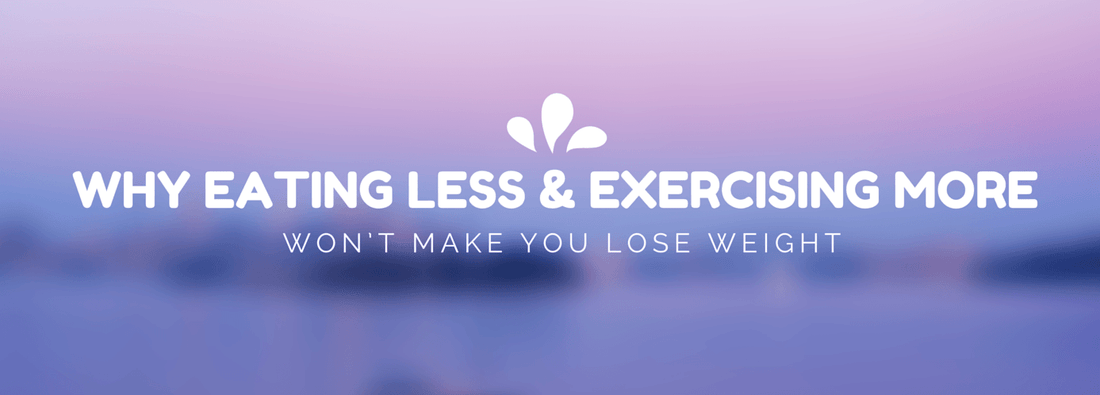The other day I happened to read the status of a personal trainer explaining his 3 greatest tips for weight loss: eat healthier, eat less, exercise more. Following this, was an explanation about how many people are simply not committed enough, and that these are the facts and there is no way around them. Although this personal trainer was extremely in shape and great at exercising I’m sure, this is a very common misconception that is held amongst personal trainers or informally trained nutritionists that reveals a lack of scientific knowledge.
Promoting this one-size-fits-all technique has one very apparent fallacy: each person is different. Emerging research has revealed that each individual has a microbial signature – much like a fingerprint, but instead using variations among gut bacteria. Research has clearly demonstrated that this microbial signature pays huge contribution to a person’s weight, digestive capacity, and metabolism. In fact, several studies have demonstrated the existence of an “obese phenotype” among various species fed exactly the same diet, with exactly the same activity level, and only varying in their microbial signature. Among the non-obese phenotype, high fat and low fat diets have shown to produce no significant difference in weight, whereas among the obese-phenotypes, dietary fluctuations impact the individual at an alarmingly high level, exacerbating fat accumulation, inflammation, and digestive disturbances.
The results of these studies are significant, as this demonstrates that eating healthier and less, and increasing exercise may not be sufficient to help individuals in reaching their goal weight, and this is not because they are not committed to lifestyle changes. Of course, these factors help, but I have come across countless individuals who are upset and confused as to why they appear to be doing everything correctly, and not losing weight, only to be scrutinized or accused of improperly following their diet regimen.
So what’s the solution here?
As I’ve said many times, each individual is different, meaning the root cause of why someone is not losing weight will vary from person to person. Here, I’ve summarized some basic but common recommendations that I often make to help clients struggling to reach their weight loss goals.
1. Proper food pairing

Let me start off by saying, I very rarely tell my clients to eat less. Unless an individual is heavily over-consuming, which is not as prevalent as you would expect, than I will ensure you have at least as much food as you regularly eat. I had someone say to me at dinner a few weeks ago “Anita, I am always amazed at how much you eat”, this can be you too. What I focus on is food pairing. Several studies have shown that increased lean protein:carbohydrate ratio (to approximately 0.75g protein: 1g carbohydrate) produces weight loss benefits. If you work on calories, there are 4 calories in each gram of protein or carbohydrate. So, for every 100 calories of carbs aim for 75 calories of protein. Although low carbohydrate diets have shown to be effective in the short term, many studies have concluded that it is the increased protein ratio that plays the more significant role in weight loss, and additionally, is more important for maintaining fat-free mass and a higher resting metabolic rate once a weight maintenance period has been reached.
2. Increase dietary fibre
Most of my clients get fairly excited when I tell them they won’t have to give up carbs. The change that I do encourage however, is to make sure you are getting high quality carbohydrates. Many people I see gain their carbohydrates from foods that are also very high in sugar. What we should be eating are carbohydrates coupled with high fibre. A high-fibre diet (greater than 35g fibre/day) has shown to promote the growth of healthy gut bacteria. Balanced gut bacteria = better digestion and processing of food = weight loss. This can be great for “obese phenotype” individuals who are more susceptible to weight gain, or people who have recently taken antibiotics or have digestive issues in general.
3. Probiotic supplementation
 Many studies have shown that obese subjects lose significantly more weight when supplementing with probiotics. This supports the theory of imbalanced gut bacteria as a driver for obesity. Probiotics help inoculate your gut with the healthy bacteria that is missing or depleted in order to achieve a healthy balance and overpower any pathogenic overgrowths you may be experiencing. Several strains of bacteria have shown to either be depleted or in excess in obese individuals, however one single variance has not been defined as characteristic of obesity. Before supplementing with probiotics, it is always recommended to get diagnostic testing, such as a comprehensive digestive stool analysis, to give a clear picture of what your gut bacteria looks like. For example, many obese individuals have shown to have a highly increased proportion of Lactobacillus, and most store bought probiotics are very high in this, making it risky to just grab one off the shelf and hope for the best. What makes things a tad more difficult is the fact that a recent survey of general practitioners revealed that doctors feel that obesity is not within their realm of knowledge and they do not believe their prescribed treatments are effective. In other words, you may have to dig a little deeper than your family doctor to find your perfect probiotic, but diagnostics can generally be done through a qualified nutritional practitioner.
Many studies have shown that obese subjects lose significantly more weight when supplementing with probiotics. This supports the theory of imbalanced gut bacteria as a driver for obesity. Probiotics help inoculate your gut with the healthy bacteria that is missing or depleted in order to achieve a healthy balance and overpower any pathogenic overgrowths you may be experiencing. Several strains of bacteria have shown to either be depleted or in excess in obese individuals, however one single variance has not been defined as characteristic of obesity. Before supplementing with probiotics, it is always recommended to get diagnostic testing, such as a comprehensive digestive stool analysis, to give a clear picture of what your gut bacteria looks like. For example, many obese individuals have shown to have a highly increased proportion of Lactobacillus, and most store bought probiotics are very high in this, making it risky to just grab one off the shelf and hope for the best. What makes things a tad more difficult is the fact that a recent survey of general practitioners revealed that doctors feel that obesity is not within their realm of knowledge and they do not believe their prescribed treatments are effective. In other words, you may have to dig a little deeper than your family doctor to find your perfect probiotic, but diagnostics can generally be done through a qualified nutritional practitioner.
4. Reduce inflammation
Feeling that belly bloat? Many people experience metabolic and digestive disturbances due to inflammation, which causes them to digest food inefficiently, and often makes them appear much larger than they are. Inflammation reduction often revolves around repairing the epithelial lining of the gut, which is often damaged in individuals who are obese or have digestive issues. This can be helped by increasing consumption of zinc, L-glutamine, and omega-3’s. To do this, make oily fish and lean meat your friend, which also ties nicely into increasing your protein consumption. This is also a significant point to think about, as inflammation is becoming increasingly recognized as the root of disease. Not only could reducing inflammation help you look and feel better now, but it also acts as a preventative step in the future of your health.

Overall, the points of “eat healthier, eat less, and exercise more” are significant, but do not accurately represent weight loss regimens. Of course, I always encourage my clients to eat healthier. Eating less, not so much, however by improving food quality and pairing clients do end up obtaining less calories and more nutrients from eating the same amount. And as for exercising more, it’s always great to get out there and get active, but this also varies per person. I have met many individuals who tell me they exercise every day, or exercise at very high intensities and are not losing weight. In cases like these, increasing exercise can actually increase oxidative damage, possibly exacerbating their inflammatory and digestive issues. In this case, I would actually recommend them to reduce their exercise frequency or intensity as part of a weight loss regimen.
As a recurrent theme, it is important to note that each step above will not apply to everyone. Some people may not need probiotics, or may have trouble digesting large amounts of protein. It is important to listen to your body and focus on how you are responding to your diet, rather than trying the same types of plans over and over because you’ve been told they’re supposed to work.







